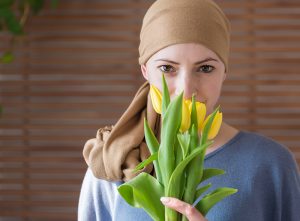Mistletoe Therapy for Cancer Treatment
 Did you know:
Did you know:
- The liquid extract of the Mistletoe plant has been used as an alternative method to treat cancer for close to a century?
- Mistletoe is one of the most widely researched naturopathic medicines prescribed for cancer patients in Europe?
- Numerous studies have shown Mistletoe Therapy may enhance cancer patient survival rates, improve quality of life, and reduce the side-effects of chemotherapy and radiation?
Mistletoe, or Viscum Album, is a plant that attaches itself to trees, such as apple, oak, maple, elm, pine, and birch. It is native to Europe and Western Asia, with medicinal uses dating back to ancient civilizations. The biologic extracts from this plant have broad applications in the field of oncology that have demonstrated consistent safety and effectiveness when used with other established treatment protocols.
Mistletoe Therapy may be used with malignant and non-malignant tumors for stimulation of bone marrow activity. It is also used, along with conventional treatments, to offset the side-effects of chemotherapy and radiation, such as nausea, vomiting, and lack of appetite. Additionally, it is used to diminish tumor-related pain and to reduce the risk of tumor recurrence.
Frequently Asked Questions
Q: Can Mistletoe Therapy be a beneficial therapy for the type of cancer I have?
A: Mistletoe therapy is indicated for all sites and histological cancer types and may be used for all stages. It can be administered at any point throughout the course of cancer and used as after-cancer prophylaxis for relapse or secondary cancer.
Q: Is Mistletoe Therapy offered by my oncologist?
A: Despite Mistletoe’s long track record of clinical use in Europe and several Asian countries, the FDA still categorizes it as an unproven biologic therapy. Therefore, it has yet to be fully adopted by Western medicine. However, in 2016 Mistletoe was approved for an extensive study at the Sidney Kimmel Comprehensive Cancer Center at Johns Hopkins. A large cohort of cancer patients enrolled and were given Mistletoe alongside conventional treatments. The published results of this study will likely bring awareness and acceptance of the benefits of Mistletoe and its broad application across the field of oncology.
Although traditional oncologists cannot currently offer Mistletoe therapy to cancer patients, Naturopathic Oncology practitioners, including The Riordan Clinic’s providers, can administer this form of cancer care.
Q: What can I expect during treatment?
A: Mistletoe is administered via injection or IV drip. Most commonly, it is injected under the skin on the abdomen. Patients tend to tolerate the treatment very well, but some will experience minor side-effects such as localized inflammation at the injection site that may cause swelling, redness, tenderness and itching. Some people experience a temporary rise in body temperature and fatigue.
Treatment is typically given three times each week. The first mistletoe injection is done onsite at The Riordan Clinic to demonstrate safe and proper injection technique and observe patients for any allergic reaction. Allergic reaction to subcutaneous Mistletoe is extremely rare. All subsequent injections can be administered at home by the patient or a trained caregiver.
As mentioned, Mistletoe may also be administered via IV, when appropriate. IV therapy always takes place onsite at the Riordan Clinic.
 Q: Should I be concerned about any interactions with other drugs I take?
Q: Should I be concerned about any interactions with other drugs I take?
A: Mistletoe has no known drug interactions, including chemotherapy drugs.
Q: What benefits can I expect from Mistletoe Therapy?
A: Benefits Include:
- Activation of the immune system and the production of defense cells
- Stimulation of programmed cell death (apoptosis) in cancer cells and blockage of angiogenesis (new blood supply)
- Protection and stabilization of the DNA of healthy cells against damage caused by cytostatic drugs, such as chemotherapy
- Improvement in general well-being
- Reduced fatigue, particularly during and after chemotherapy
- Reduced nausea during chemotherapy
- Improved appetite
- Improved sleep
- Increased energy
- A slight increase in body temperature (Many cancer patients have a lower than average body temperature and often feel cold.)
- Less sensitivity to pain, so fewer painkillers, and sedatives are needed
- Patients often report a more positive outlook, more courage, initiative, and less fear
Q: Are there any special populations that cannot use Mistletoe Therapy?
A: Mistletoe therapy is not recommended for anyone with an allergy to Mistletoe, or anyone with acute inflammatory disease, autoimmune disease, high fever, pregnancy, Myasthenia gravis, multiple sclerosis, or uncontrolled hyperthyroidism.
Q: Can I receive Mistletoe Therapy while receiving other treatments, such as radiation or chemotherapy?
A: Yes. Mistletoe can help alleviate some of the common side-effects of radiation and chemotherapy, such as fatigue, nausea, and difficulty sleeping. Read the previously-detailed list of benefits of Mistletoe Therapy.
Q: Have there been clinical studies done on Mistletoe Therapy?
A: Many clinical studies examining Mistletoe use with cancer patients have shown improved outcomes, both in conjunction with conventional treatments and as a stand-alone adjuvant therapy.
Another compelling benefit, which has been observed in a multitude of clinical trials, is improved quality of life. Outcomes include less severe side-effects from chemotherapy such as fatigue, depression, nausea and vomiting, and improved emotional well-being and concentration.
Q: How much does it cost? Is Mistletoe Therapy covered by health insurance?
A: The initial kit costs $685. Monthly treatments thereafter cost $200-$400 each.
Health insurance does not currently cover this treatment because it is considered alternative medicine.
To learn more about Mistletoe Therapy and book an appointment call 800-447-7276





